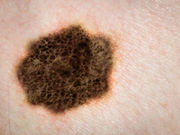Survival just as long for those who have less extensive surgery, researchers find
THURSDAY, June 8, 2017 (HealthDay News) — Complete lymph node dissection may not increase a melanoma patient’s overall chances for survival, according to a study published in the June 8 issue of the New England Journal of Medicine.
Investigators tracked 1,934 melanoma patients from 60 medical facilities between 2004 and 2014. All the study participants were initially diagnosed with cancer in their sentinel lymph node. Roughly half (971 patients) underwent extensive lymph node surgery to remove the sentinel node and adjacent lymph nodes. The remaining patients only underwent minimally invasive sentinel node removal, leaving all surrounding nodes in place for further observation.
The researchers found that removing all the lymph nodes did help doctors get more detail on a patient’s long-term prospects. Doing so also appeared to extend the period of time patients remained disease-free. However, complete lymph node removal was no better than less extensive surgery and observation for extending survival. Among those who had all their lymph nodes removed, nearly one-quarter (24.1 percent) developed lymphedema. Among those who only had their sentinel node removed, 6.3 percent developed lymphedema, while survival rates remained comparable.
“These findings provide strong support for the hypothesis that leaving this potential residual nodal disease in place does not contribute further to systemic risk among patients who are identified as being at high risk for distant disease on the basis of their positive sentinel-node status,” writes the author of an accompanying editorial.
Several authors disclosed financial ties to the pharmaceutical industry.
Copyright © 2017 HealthDay. All rights reserved.








